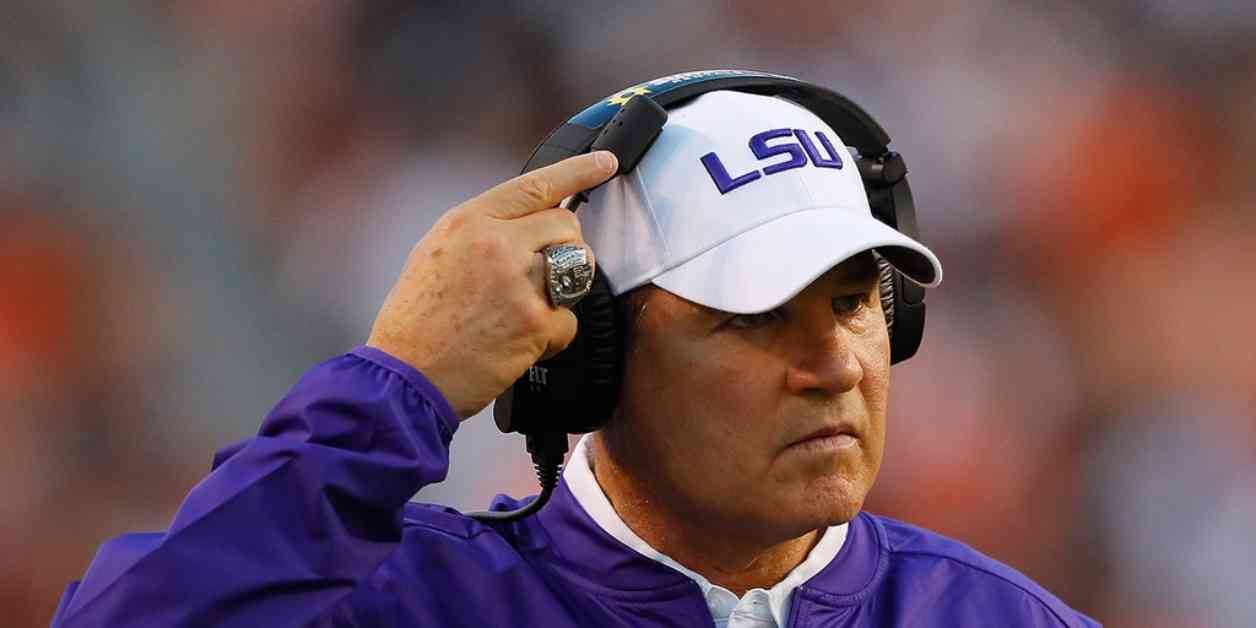Former LSU head football coach Les Miles has taken legal action against the university, alleging that the vacated wins from 2012-2015 are preventing him from being considered for the College Football Hall of Fame. In the lawsuit, Miles is seeking a remedy for the damage done to his reputation, as 37 wins were removed from his coaching record by the school during that period. This adjustment brings his overall win percentage below the required threshold of .600 for Hall of Fame eligibility, which is overseen by the NCAA and National Football Foundation.
The vacated wins stem from an NCAA investigation that revealed a Level I recruiting violation that occurred in 2012 while Miles was coaching at LSU. The violation involved a representative of the Tigers athletics program paying the father of a potential recruit a significant sum of money over several years as part of an embezzlement scheme. As a result, the wins from that period were nullified by LSU.
Miles’ lawsuit accuses the university of prematurely imposing the punishment and denying him the opportunity to defend himself. The former coach, who is highly regarded in Louisiana for his contributions to college football, had his eligibility for the Hall of Fame revoked without a fair hearing.
Having turned 70 last November, Miles would have been eligible for induction into the Hall of Fame, but no Division I school he coached for, including Oklahoma State and Kansas, nominated him for consideration. With his win percentage currently standing at .597, Miles is determined to restore his record to meet the necessary criteria for Hall of Fame induction.
While Miles began his career as a head coach at Oklahoma State in 2001, it was his tenure at LSU from 2005 onwards that solidified his reputation. During his time with the Tigers, he led the team to two BCS Championship appearances, winning one in 2007. Despite his success at LSU, only 77 of his 114 wins with the program are officially recognized due to the vacated victories.
In 2019, Miles took on the challenge of coaching the Kansas Jayhawks, but his tenure with the team was short-lived and unsuccessful. Over two seasons, he accumulated a record of 3-18, including a winless 2020 campaign.
Les Miles’ legal battle with LSU and the NCAA underscores the complex relationship between collegiate athletics and Hall of Fame recognition. As the case unfolds, it raises questions about fairness, accountability, and the long-term impact of NCAA violations on the careers of esteemed coaches like Miles.





















